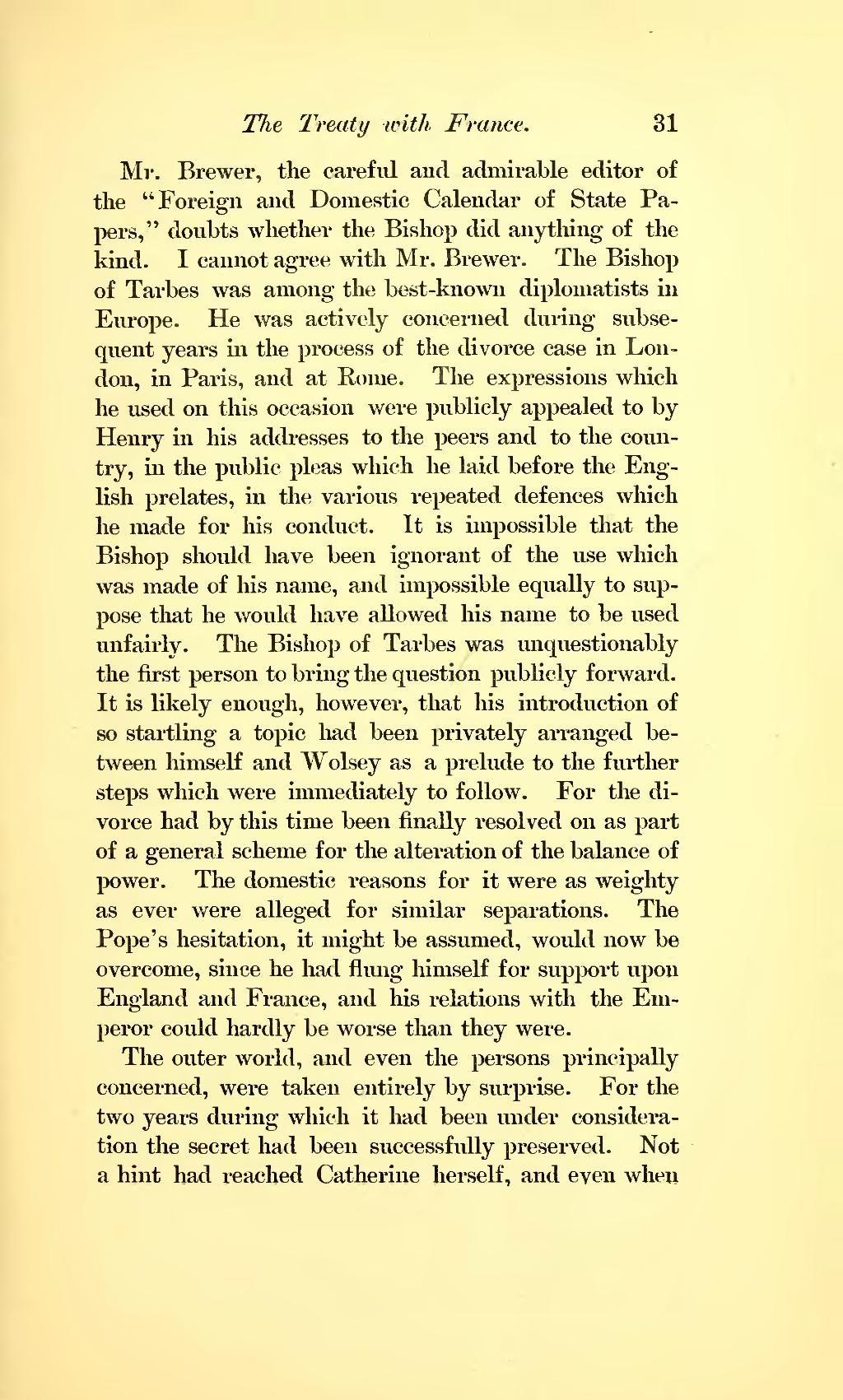Mr. Brewer, the careful and admirable editor of the "Foreign and Domestic Calendar of State Papers," doubts whether the Bishop did anything of the kind. I cannot agree with Mr. Brewer. The Bishop of Tarbes was among the best-known diplomatists in Europe. He was actively concerned during subsequent years in the process of the divorce case in London, in Paris, and at Rome. The expressions which he used on this occasion were publicly appealed to by Henry in his addresses to the peers and to the country, in the public pleas which he laid before the English prelates, in the various repeated defences which he made for his conduct. It is impossible that the Bishop should have been ignorant of the use which was made of his name, and impossible equally to suppose that he would have allowed his name to be used unfairly. The Bishop of Tarbes was unquestionably the first person to bring the question publicly forward. It is likely enough, however, that his introduction of so startling a topic had been privately arranged between himself and Wolsey as a prelude to the further steps which were immediately to follow. For the divorce had by this time been finally resolved on as part of a general scheme for the alteration of the balance of power. The domestic reasons for it were as weighty as ever were alleged for similar separations. The Pope's hesitation, it might be assumed, would now be overcome, since he had flung himself for support upon England and France, and his relations with the Emperor could hardly be worse than they were.
The outer world, and even the persons principally concerned, were taken entirely by surprise. For the two years during which it had been under consideration the secret had been successfully preserved. Not a hint had reached Catherine herself, and even when

